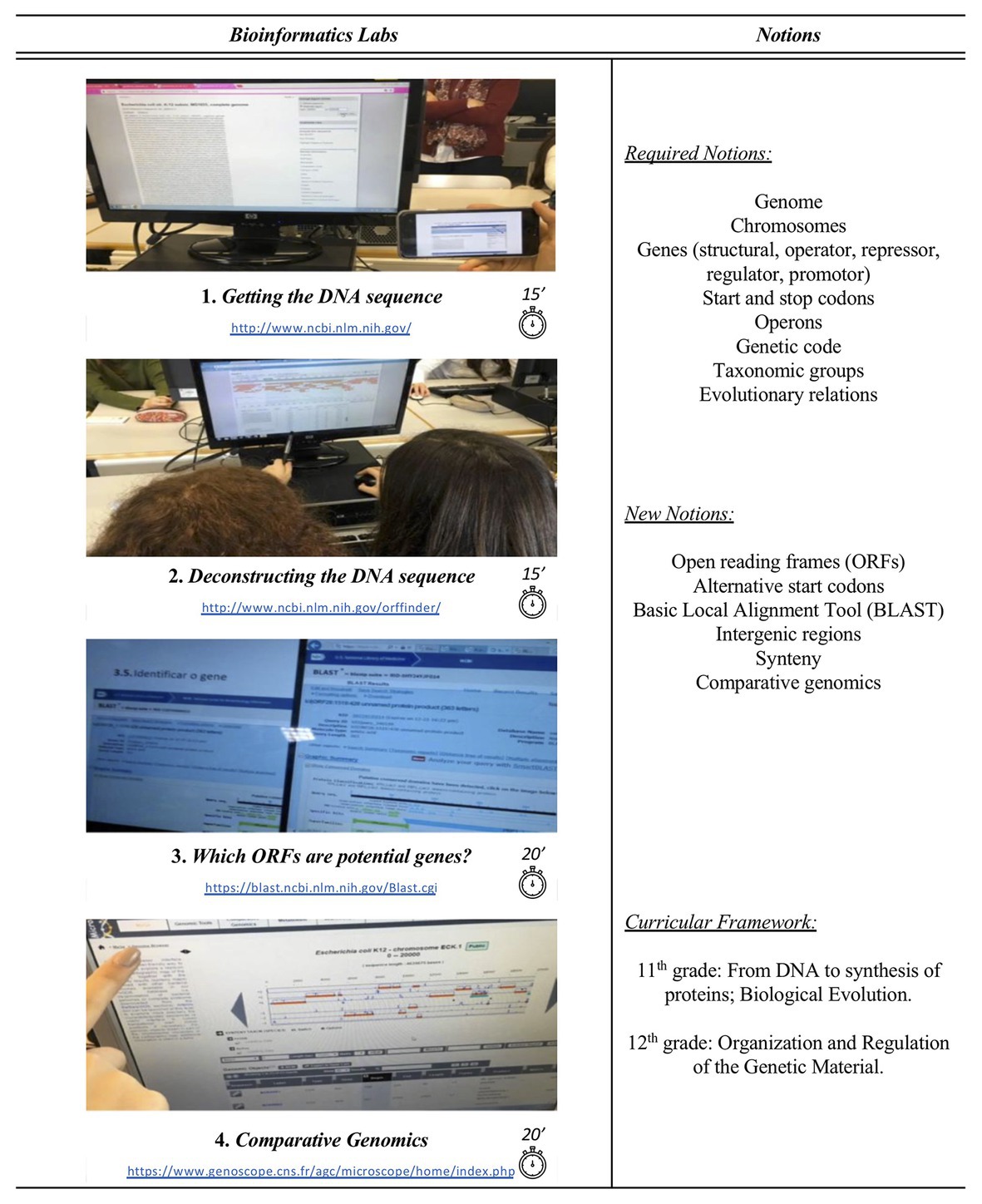Not known Details About Bioinformatics Tutor
Not known Details About Bioinformatics Tutor
Blog Article
Indicators on Bioinformatics Tutor You Should Know
Table of ContentsThe 4-Minute Rule for Bioinformatics TutorHow Bioinformatics Tutor can Save You Time, Stress, and Money.Some Known Questions About Bioinformatics Tutor.Indicators on Bioinformatics Tutor You Should KnowNot known Facts About Bioinformatics Tutor
Of the overall participants involved in the training, 80% were students from public greater education and learning establishments, while the continuing to be 20% originated from personal institutions. To get a certification of involvement, students were called for to attend a minimum of 90% of the total training hours. As an outcome of this demand, an excellent 95% of the participants efficiently acquired their certificates, having not just satisfied the minimum participation criteria however also finished all designated activities throughout the training.
During the elevation of the COVID-19 pandemic, specifically in between June and August 2020, the task team was entrusted with organizing specialized training in bioinformatics. This training was specifically aimed at pupils from the research team Core for Research study in Applied Computer at the Federal College of Pará (UFRA) The adaptation to remote discovering platforms because of the pandemic developed a chance to discover new mentor techniques and digital devices that boosted both reach and effectiveness.
This course was made to supply an available yet comprehensive introduction of Artificial Intelligence strategies, particularly as applied in bioinformatics (Bioinformatics Tutor). This online format made it possible for involvement from students throughout Brazil, many of whom may not have had the opportunity to participate in in-person sessions.
Rumored Buzz on Bioinformatics Tutor
A significant function of this program was its focus on hands-on understanding. Around 50% of the complete training hours were devoted to functional activities where trainees built smart versions and applications in a variety of clinical domain names, consisting of genetics, molecular biology, and environmental data evaluation. Extensively made use of tools and frameworks such as Spyder, Google Colab, Jupyter Notebooks, and Orange were integrated right into the coursework. These systems made it possible for students to take part in real-time data manipulation, design training, and formula trial and error.
Sixty of them were associated with various greater education and learning organizations in the state of Pará, while the remaining twenty came from establishments found in five various other Brazilian states. By introducing Artificial Knowledge in a functional and appropriate context, the initiative offered to connect the void between concept and real-world application, supplying students with a strong foundation for future study or employment in the area.
The training initiative created part of a more comprehensive academic outreach initiative called the Bioinformatics when traveling job. This task has, throughout the years, introduced lots of pupils to the world of bioinformatics and computational biology. The occasions held under this umbrella initiative have actually happened throughout numerous regions and years, as summed up in Table 1 (List of events, areas, years, and total numbers of pupils and instructors)
Among one of the most amazing end results of the Bioinformatics when traveling effort has actually been its payment to the development of decentralized research groups. Numerous of these teams, initially brought with each other by their engagement in training events, have considering that taken place to produce independent scientific study in collaboration with local academic establishments. The training not only promoted scientific thinking within the context of bioinformatics however additionally triggered collaborative partnerships that expanded past the training environment. These partnerships have caused raised local scientific efficiency and contributed meaningfully to the advancement of the more comprehensive bioinformatics area in Brazil.
Bioinformatics Tutor Can Be Fun For Everyone
The task itself was conceived and organized by megabytes and RR, who looked after the preparation and execution visit this web-site of each action. Lectures were provided by a multidisciplinary group being composed of MB, FA, EF, KP, JS, DM, SN, LP, LG, RR, ih, and air conditioner. The exact same group, leaving out IH and RR, likewise acted as tutors for the sensible training modules. Financing for the job was provided with the grant 88887.200562/ 2018-00 from CAPES. The writers extend their gratefulness to everybody who contributed to the understanding of this project, whether straight or indirectly, since its beginning.
The Federal College of Pará's Office of Research study (PROPESP/UFPA) additionally offered economic support, particularly for the manufacturing of the final manuscript. The authors proclaim no economic or commercial disputes of passion that could have influenced the research study. Furthermore, all viewpoints and analyses revealed in this post are only those of the writers and do not always mirror those of their respective organizations, the author, editors, or customers entailed in the publication process.

A Biased View of Bioinformatics Tutor
From an instructional viewpoint, the training strategy made use of in the training was purposefully interactive. Courses were carried out in a way that encouraged student participation and conversation, exceeding memorizing memorization to check out exactly how ideas are developed, applied in life, and evaluated in scholastic setups. The educational ideology concentrated on nurturing both solid and struggling students, giving individualized support, and building confidence via sustained mentorship and persistence.

Each group, including about 36 individuals, was sustained by three mentors-- most of whom were postdoctoral scientists with customized experience. These advisors not only helped design the team jobs but also promoted their implementation, guaranteeing that each research inquiry was both suitably challenging and appropriate. The goal was to give a biologically realistic context that individuals might explore via flexible objectives and accessibility to curated datasets.
For extra understandings right into the methodology and end results of this project-based discovering approach, viewers are directed to S1 Text, that includes thorough descriptions of the pedagogical structure, evaluation approaches, and task themes made use of in the training sessions.
Getting The Bioinformatics Tutor To Work
Of the overall individuals involved in the training, 80% were trainees from public greater education organizations, while the staying 20% came from exclusive institutions. To qualify for a certification of engagement, students were required to go to at the very least 90% of the complete training hours. Notably, beyond the students who signed up in the training sessions, 7 experienced instructors took part in providing the programs, while 3 committed study teachers coordinated the overall training process. Roughly 50% of the total training hours were devoted to practical tasks where pupils constructed smart versions and applications in an array of clinical domain names, consisting of genetics, molecular biology, and environmental data analysis. The training not only fostered clinical reasoning within the context of bioinformatics yet additionally stimulated collective connections that extended beyond the training environment.
Report this page